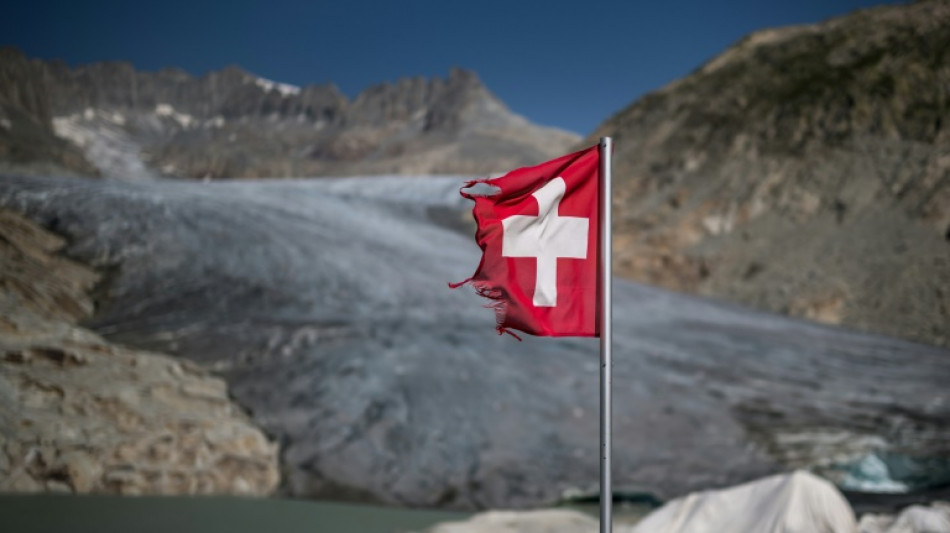
-
 Kremlin says agreed to halt strikes on Kyiv until Sunday
Kremlin says agreed to halt strikes on Kyiv until Sunday
-
Carrick calls for calm after flying start to Man Utd reign

-
 Djokovic to meet Alcaraz in Melbourne final after five-set marathon
Djokovic to meet Alcaraz in Melbourne final after five-set marathon
-
Italian officials to testify in trial over deadly migrant shipwreck

-
 Iran says defence capabilities 'never' up for negotiation
Iran says defence capabilities 'never' up for negotiation
-
UN appeals for more support for flood-hit Mozambicans

-
 Lijnders urges Man City to pile pressure on Arsenal in title race
Lijnders urges Man City to pile pressure on Arsenal in title race
-
Fulham sign Man City winger Oscar Bobb

-
 Strasbourg's Argentine striker Panichelli sets sights on PSG, World Cup
Strasbourg's Argentine striker Panichelli sets sights on PSG, World Cup
-
Jesus 'made love': Colombian president irks Christians with steamy claim

-
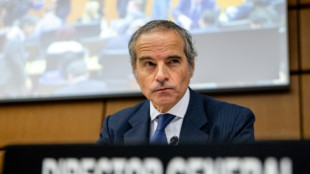 IAEA board meets over Ukraine nuclear safety concerns
IAEA board meets over Ukraine nuclear safety concerns
-
Eurozone growth beats 2025 forecasts despite Trump woes

-
 Dutch PM-elect Jetten says not yet time to talk to Putin
Dutch PM-elect Jetten says not yet time to talk to Putin
-
Social media fuels surge in UK men seeking testosterone jabs

-
 Forest face Fenerbahce, Celtic draw Stuttgart in Europa League play-offs
Forest face Fenerbahce, Celtic draw Stuttgart in Europa League play-offs
-
US speed queen Vonn crashes at Crans-Montana, one week before Olympics
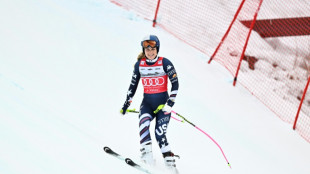
-
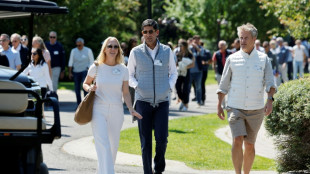 Trump nominates former US Fed official as next central bank chief
Trump nominates former US Fed official as next central bank chief
-
New Dutch government pledges ongoing Ukraine support

-
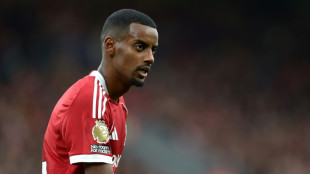 Newcastle still coping with fallout from Isak exit, says Howe
Newcastle still coping with fallout from Isak exit, says Howe
-
Chad, France eye economic cooperation as they reset strained ties

-
 Real Madrid to play Benfica, PSG face Monaco in Champions League play-offs
Real Madrid to play Benfica, PSG face Monaco in Champions League play-offs
-
Everton winger Grealish set to miss rest of season in World Cup blow

-
 Trump brands Minneapolis nurse killed by federal agents an 'agitator'
Trump brands Minneapolis nurse killed by federal agents an 'agitator'
-
Arteta focuses on the positives despite Arsenal stumble

-
 Fijian Drua sign France international back Vakatawa
Fijian Drua sign France international back Vakatawa
-
Kevin Warsh, a former Fed 'hawk' now in tune with Trump

-
 Zverev rails at Alcaraz timeout in 'one of the best battles ever'
Zverev rails at Alcaraz timeout in 'one of the best battles ever'
-
Turkey leads Iran diplomatic push as Trump softens strike threat

-
 Zelensky backs energy ceasefire, Russia bombs Ukraine despite Trump intervention
Zelensky backs energy ceasefire, Russia bombs Ukraine despite Trump intervention
-
'Superman' Li Ka-shing, Hong Kong billionaire behind Panama ports deal

-
 Skiing great Lindsey Vonn crashes at Crans-Montana, one week before Olympics
Skiing great Lindsey Vonn crashes at Crans-Montana, one week before Olympics
-
Slot warns Liverpool 'can't afford mistakes' in top-four scrap

-
 Paris show by late Martin Parr views his photos through political lens
Paris show by late Martin Parr views his photos through political lens
-
Artist chains up thrashing robot dog to expose AI fears

-
 Alcaraz outlasts Zverev in epic to reach maiden Australian Open final
Alcaraz outlasts Zverev in epic to reach maiden Australian Open final
-
French PM forces final budget through parliament

-
 French-Nigerian artists team up to craft future hits
French-Nigerian artists team up to craft future hits
-
Dutch watchdog launches Roblox probe over 'risks to children'

-
 Trump brands Minneapolis nurse shot dead by federal agents an 'agitator'
Trump brands Minneapolis nurse shot dead by federal agents an 'agitator'
-
Israel says killed 'three terrorists' in Gaza

-
 After Trump-fueled brawls, Canada-US renew Olympic hockey rivalry
After Trump-fueled brawls, Canada-US renew Olympic hockey rivalry
-
Eileen Gu - Olympic champion who bestrides rivals US, China

-
 Trump, first lady attend premier of multimillion-dollar 'Melania' documentary
Trump, first lady attend premier of multimillion-dollar 'Melania' documentary
-
US Senate eyes funding deal vote as government shutdown looms

-
 Cuddly Olympics mascot facing life or death struggle in the wild
Cuddly Olympics mascot facing life or death struggle in the wild
-
UK schoolgirl game character Amelia co-opted by far-right

-
 Anger as bid to ramp up Malaysia's football fortunes backfires
Anger as bid to ramp up Malaysia's football fortunes backfires
-
Panama court annuls Hong Kong firm's canal port concession

-
 Pioneer African Olympic skier returns to Sarajevo slopes for documentary
Pioneer African Olympic skier returns to Sarajevo slopes for documentary
-
Trump threatens tariffs on nations selling oil to Cuba

| VOD | -0.17% | 14.685 | $ | |
| RYCEF | -2.69% | 16 | $ | |
| RELX | -0.81% | 35.875 | $ | |
| CMSC | -0.21% | 23.645 | $ | |
| BTI | -0.13% | 60.13 | $ | |
| NGG | -0.1% | 84.965 | $ | |
| RIO | -2.64% | 92.68 | $ | |
| AZN | 0.39% | 92.95 | $ | |
| GSK | 1.21% | 51.275 | $ | |
| RBGPF | 1.65% | 83.78 | $ | |
| CMSD | 0.17% | 24.1 | $ | |
| JRI | 0.27% | 12.99 | $ | |
| BP | 0.42% | 38.2 | $ | |
| SCS | 0.12% | 16.14 | $ | |
| BCC | -1.57% | 78.93 | $ | |
| BCE | 0.14% | 25.52 | $ |

Two 'catastrophic' years melt away 10% of Swiss glacier volume: study
Two consecutive years of extreme warming in the Alps have obliterated 10 percent of Swiss glacier volume -- the same amount lost in the three decades prior to 1990, a report revealed Thursday.
Amid growing concerns over the dire toll of climate change, the study by the Cryospheric Commission (CC) of the Swiss Academy of Sciences showed a dramatic glacial retreat, and warned the situation would only get worse.
"Swiss glaciers are melting at a rapidly increasing rate," it said in a statement.
2022 marked the worst year on record for glacier melt in the Swiss Alps, with six percent of the total ice volume lost.
The glaciers have not fared much better this year, the CC report showed, with another four percent of ice volume destroyed, "representing the second largest decline since measurements began".
"The acceleration is dramatic, with as much ice being lost in only two years as was the case between 1960 and 1990," it said.
The result of two consecutive extreme years had been collapsing glacier tongues and some smaller glaciers vanishing all together.
"All glaciers melted a lot," Matthias Huss, head of Glacier Monitoring in Switzerland (GLAMOS), told AFP.
"But for the small glaciers, (the) melting is especially dramatic because these small glaciers are really disappearing right now."
- 'Dead ice' -
GLAMOS, which monitors 176 of Switzerland's some 1,400 glaciers, recently halted measurements at the St. Annafirn glacier in the central Swiss canton of Uri since it had all but disappeared.
"We just had some dead ice left," Huss lamented.
The massive glacier loss seen in Switzerland was linked in large part to a winter with very low snow volumes, as well as soaring summer temperatures.
"It's a combination of climate change that makes such extreme events more likely, and the very bad combination of meteorological extremes," Huss explained.
"If we continue at this rate... we will see every year such bad years."
Scientists have already warned that the Swiss glaciers could all but disappear by the end of the century without more action to rein in global warming.
"We have seen such strong climate changes in the last years that it's really possible to imagine this country without any glaciers," Huss said.
- 'Stabilise the climate' -
He stressed the need to "stabilise the climate by bringing the CO2 emissions to zero as soon as possible".
But Huss acknowledged that even if the world managed to meet the Paris targets of limiting global warming to 1.5 degrees Celsius above pre-industrial levels, only around a third of glacier volume in Switzerland would be saved.
That means that "all the small glaciers will be gone anyway, and the big glaciers will be much smaller", he said, but stressed that at least "there will be some ice in the highest regions of the Alps and some glaciers that we can show to our grandchildren."
This year's melt impacted glaciers across Switzerland, with those in the south and the east of the country particularly hard-hit.
The average ice thickness loss there was up to three metres (9.8 feet) and was "considerably higher than the values recorded in the hot summer of 2003", the researchers said.
The study showed that even some glaciers above 3,200 metres (10,500 feet), which until recently had "preserved their equilibrium", had seen several metres of ice melt away.
The year was marked by barely any precipitation at all over the 2022-23 winter months, meaning far less snow cover than usual, followed by the third-warmest summer in the Alps since measurements began.
It got so warm that at one stage, the freezing point above the mountain range rose to 5,298 metres (17,381 feet) -- way above the highest peaks and beating by far the zero-degree line record.
G.Schmid--VB




